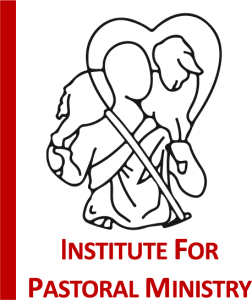Speeches
- Home
- About Us
- Speeches
Noemi Portelli
Graduation Ceremony – Safeguarding of Minors Course 2019/2020 09.07.2020
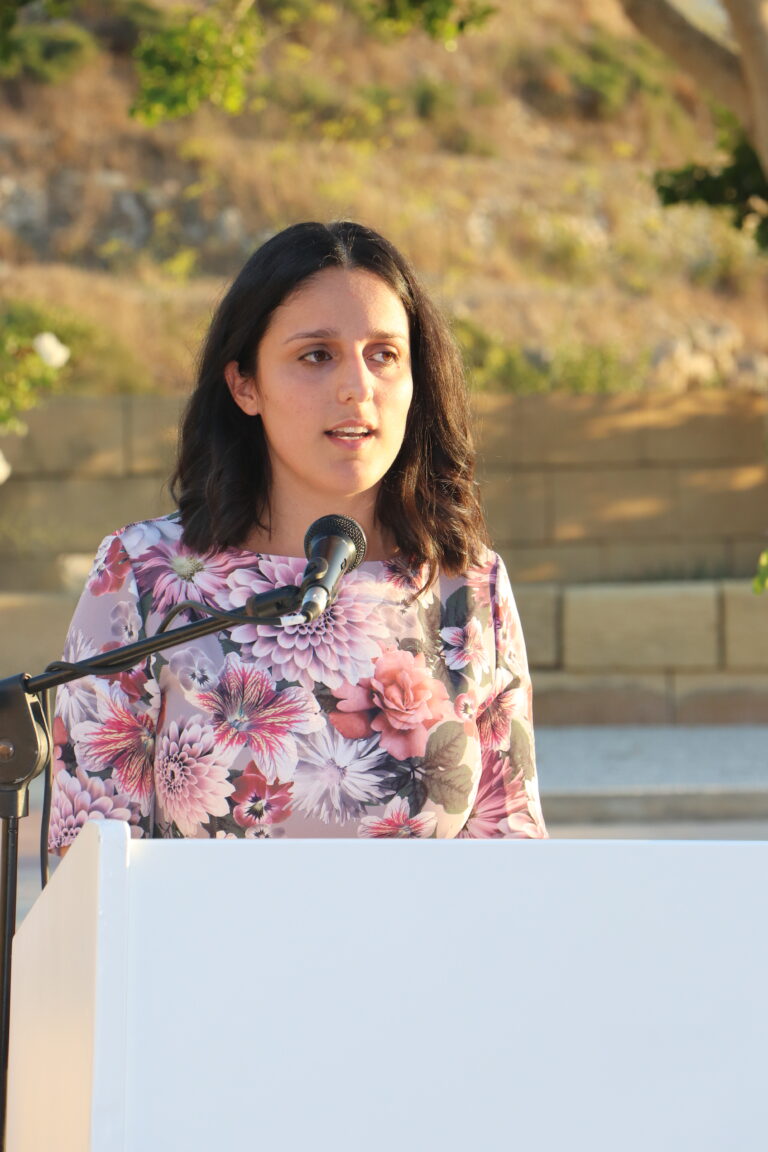
Greetings. At some point, we were all minors. We all know that this is a crucial time for the holistic development of the human being. Both childhood and youth are moments in our life where the main aim should be a healthy development. When I mention development, I am not just referring to physical development, but also to psychological, affective and emotional development. The love we feel towards our young should instil in us the urge to do everything in our power to ensure that childhood and youth are as serene, and beautiful as it possibly could, surrounded by much love so as these children will grow into adults within a safe environment.
The Safeguarding of Minors course that we read for, envisions this. All of you, who attended this course with me, know that it was an intensive one and a bit difficult. Difficult, not in terms of content, but rather the fact that you realise the lack of awareness in our society.
The most impressive thing during the course was the fact that in many places and circumstances in our lives, we are not aware of the danger around us. That is how the desire to learn more started. I yearned to discover and understand better how to be able to recognise certain signs and indicators in order to be of help to people I might encounter.
Primarily, as a mother, I longed to participate in this course to protect my son from dangers that could easily be avoided when one has the necessary knowledge and awareness. I still remember the first few lessons that we had at the Family Institute (Ta’ Kana), when Fr Joseph asked us whether we thought that the room we were in was safe or not. I recall thinking that it was safe but at that time, I did not really know why. It was safe because it had a glass door and outsiders could see what was happening inside. It was safe, because one could see all four corners. I remember that after that lecture I kept on thinking about it. How many of all the places my son, my students, myself attend are the same?
Thanks to such a course, nowadays, I am more aware and pay attention to the security features wherever I go. In my opinion, one of the most important aspects in this course was to help us become proactive rather than reactive. Most importantly, apart from skills to recognise abuse, one is equipped with prevention skills. We are all obliged to protect our minors; as such, I drew the attention of the person in charge of the parish where I work to improve places that are not safe.
As a mother, I question and keep close contact with my son to ensure his safety within every group he forms part of. As a schoolteacher, I keep contact with students and I feel that now I can even contribute so that as staff we are adequately trained. I am certain that you all do it as well at your work places.
At the youth centre where I attend, I feel that I am more aware and make sure that everyone is comfortable in doing the activities that are organised. By no means do I want to sound paranoid. However, now I am more aware about signs that might indicate there is something wrong and I feel more confident of how to act in such case.
I believe that different persons in different circumstances react in different ways and that is why it is highly important that everyone is aware of the signs and indicators, maybe through a writing, a game in class, a drawing etc. I feel that we learned a great deal through the experiences we shared and via case studies, we discussed during our lectures.
This is not the usual course where you are proud in gaining yet another certificate and achieving personal satisfaction only. We all took this wise commitment in favour of our young. What I wish for my fellow course mates, past safe guarders and future ones, is to be keep up to this commitment and stay alert to any red flags in order to intervene timely as necessary.
Cheryl Grech
Graduation Ceremony – Safeguarding of Minors Course 2020/2021 23.07.2021
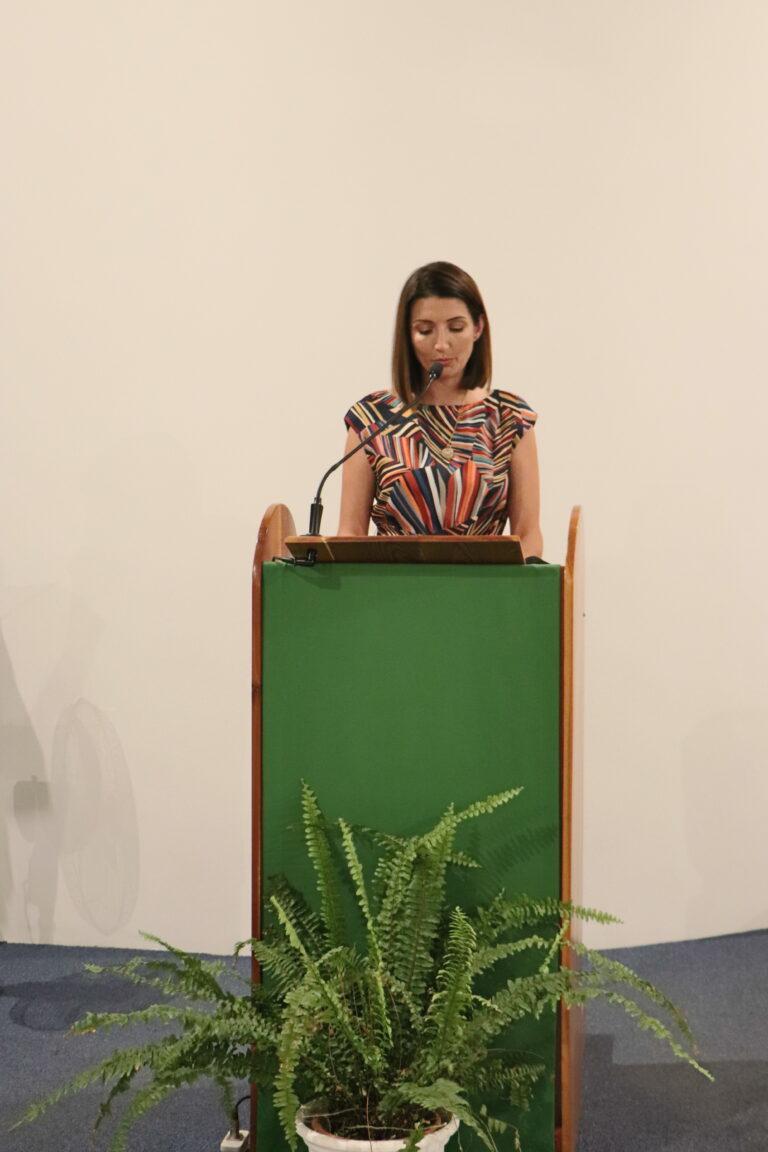
Your Lordship, distinguished guests, Reverend Farrugia, colleagues and guests.
We have met here today to mark the first step in the mission that we educators and other persons have been entrusted with, that of safeguarding of minors within our community. On the occasion of the graduation in the course Safeguarding of Minors, we are focusing our attention on the hundreds of minors who will be the future leaders of our communities, and who presently at different times of day and in different circumstances are entrusted to our care. I wish first of all to thank Rev Joseph Farrugia and his collaborators for the impeccable way in which the course was conducted. My thanks also to Rev Farrugia who in the meantime has made us very aware of the responsibility that we all shoulder in safeguarding minors.
At this moment we cannot fail to hear echoing in our ears the words of Our Lord Jesus Christ so often referred to by Pope Francis: “But whoever causes one of these little ones who believe in Me to sin, it would be better for him if a millstone were hung around his neck, and he were drowned in the depth of the sea. Woe to the world because of offenses! For offenses must come, but woe to that man by whom the offense comes!” (Mt 18,6-7)
For us all who are engaged in the field of education of the Gozo Diocese these words have a deeper significance than for lay teachers. While all are subject to mistakes, yet society generally expects a higher level of morality from institutions or in some way associated with the Catholic Church
It is on account of this that what we have learnt in this course is of special significance to us in our daily life. Rev Farrugia has succeeded to intertwine responsibility which is of the utmost importance with the love that saints like St. John Bosco had for education. Compassion and mercy, so greatly emphasised by Pope Francis in his encyclicals, and which the Salesian Community regularly practices with youngsters, has been expounded to us with great and clear simplicity along the course. This makes it possible for us graduands that we make these Christian principles the basis of our relationship with minors.
Former generations consistently strove to preserve Christian values, a sense of what is right, a fair balance in their actions, a sense of public decency and morality. It seems now that the same responsibility falls on us to preserve these and pass them on to future generations. It is our Christian responsibility that while we promote tolerance, at the same time we are bound to listen to the minors entrusted to our care with love and respect, understand and respect the diversity and meantime guide these same minors to distinguish between what is right and what is wrong. It is on this account that we educators give minors the chance to confide in us, be a shelter for them and encourage them to talk about what is wrong irrespective of where or who it comes from.
It is the responsibility of us adults to protect the vulnerable section of society of which minors form part. This course has a special relevance particularly in present times when from an insular and somewhat isolated culture we have moved on to a pluralistic society open to all the dangers of modern times. At the same time the course has evidenced to us the importance of fighting the ‘omerta’ that so often dominates Gozitan culture, so that minors and vulnerable persons in our community are protected in the best possible way.
Meantime we should feel responsible that while being prudent in what we teach, we have also to make minors understand that not all discipline constitutes abuse and that not all methods of correction go against the rights of minors.
Finally, I wish to thank all, Bishop Anton Teuma for this significant occasion, Rev. Farrugia for his dedication and you colleagues who shared with me this very profitable course.
I close by encouraging you all to join me in celebrating with a sense of responsibility the good life offers in the knowledge that notable responsibility in tomorrow’s citizens, tomorrow’s social fibre depends on that which we shall be imparting to the minors presently entrusted to our care.
Thank you
David Grech
Graduation Ceremony – Safeguarding of Minors Course 2021/2022 08.07.2022
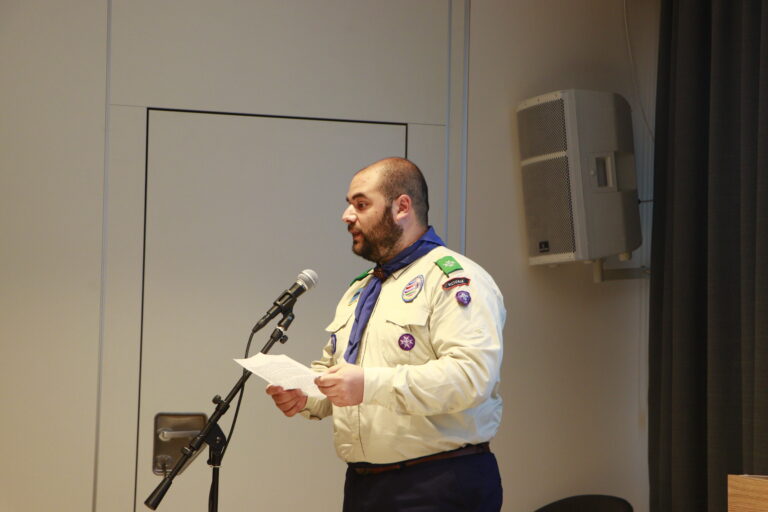
A year ago, I was sitting at this same ceremony, as a guest. My wife, who is an educator in a Church school in Gozo had just completed this same Safeguarding course that my colleagues and I have just completed. After each of her sessions, she would tell me that this course is a must for us Scout leaders. These same words were uttered by our Group Scout leader who had also just followed the course.
I, however, tend to be a doubting Thomas. I did not expect that this course would be able to detach itself from the Catholic narrative and be able to tackle such a subject from an objective point of view. All this doubt was swept aside by the first lecture. I soon realised that this course, should be offered and taught not only to individuals who, like myself, are involved in associations that involve minors but indeed to all adults.
Fr. Joseph, as an expert on the matter, was very able to discuss the subject without superimposing his vocation as a priest. This was very important to me as I was able to understand better the vastness of this area of knowledge. Through the excellent use of examples from the Scouting and Guiding world, Fr Joseph made it more relatable to our reality. This was crucial in helping us to gain a deeper understanding of such a sensitive subject.
The course is not an easy one. Apart from the extensive material covered, the psychological impact of the said material is quite heavy. After each session, I would go home and consider deeply what I had just heard. The course which makes you reflect. I have been a scout for nearly 30 years, since I was 8 years old. Scouting was the first club that I was in where I was not in the presence of my parents apart from school. Several situations and examples that Fr. Joseph talked about showed me how lucky I had been to have never fallen victim. Most of this so called ‘luck’ however, was the result of having had responsible leaders and other significant adults in charge of the Group. Back then, we also had several English leaders who, at times through their approach to certain situations made us think that they were creating a mountain out of a mole hill. However, as Fr. Joseph elucidated, awareness about safeguarding started in America over 30 years ago, passing then through the UK and Northern Europe and finally also arriving at the shores of the Mediterranean. I believe that one of the reasons for this lengthy path in the cultural history of Mediterranean countries, is the concept of Omerta.
Today, there is more awareness, more information, and more access to courses such as this. As a scout leader for twenty years, as a coach in a local football nursery and as a father of two boys, I could fully appreciate how such a course could be of value in today’s society. Before this course, as a parent, I had already, maybe unconsciously, taken decisions together with my wife, about our children. When deciding were to send our children to Catechism, to football, to mass or to any other extracurricular activity where we would not be present, our experience or the experience of others always factored in our decision making. Today with the tools I learned from this course I realise that certain situations would immediately point to red flags or that certain situations would been nipped in the bud.
This, in fact was our main focus when working on the assignment that was due at the end of the course. We wanted to use what we had just learned and apply it in practice so that we could improve our service as scout leaders. In the scout law we say, “I promise to do my best, to do my duty”. I, and all my fellow leaders live by these words in all that we do, not just in scouting, however this course has further emphasised that our duty doesn’t just mean to develop the good character in our participants but also to ensure that those under our care are protected from any type of abuse. Moreover, our duty also pushes us to ensure that we pass on these values to our participants, so that they can become adults who embrace these values. We put an emphasis on the Scout camp, which is the event which encompasses a year’s work, where the Scouts can put into practice all that they have learned during the year.
Camp however presents certain risks, which during this course, Fr. Joseph made us more aware of. Thus, we delved deep in analysing every aspect of camp and we formulated a risk assessment that could help us come up with control measures to eliminate, minimize or mitigate risk. Between the four of us, and over 100 years of experience in total as scout leaders, we were able to analyse this from various angles. This led to a final document, which, although slightly longer than the required word count limit imposed on us by Fr. Joseph, by a few thousand words, could be presented to the group so that we could build a setup where we would be better able to fulfil our Scout Law, “Do your best, Do your duty”.
To close off, I wish to make two small points, maybe three. Firstly, this type of course should be advertised a lot more in clubs and associations that involve children. There are a lot of good people out there who would benefit from such a course. Secondly, as Fr. Joseph mentioned, a lot of the abuse occurs within the confines of the home. For this reason, this course should be available to parents and prospective parents. Not only during pre-natal classes but also during various stages of a child’s development. During various conversations with parents of twelve/fourteen-year-olds, one becomes aware of how at times, something which is happening under one’s nose easily goes unnoticed.
Finally, such a course should also be made available to the children themselves. Although at school kids have PSCD and similar subjects such a course can only be of benefit. Even though it is not a simple subject to breach with children, I believe that if they are more aware of these situations our children will benefit. Not only for today, but also for the future so that when they become adults themselves, they may be better citizens in tomorrow’s society.
Robert Gatt
Ċerimonja tal-Gradwazzjoni – kors ta’ Introduzzjoni għall-Istudji Bibbliċi 2022/2023 21.07.2023
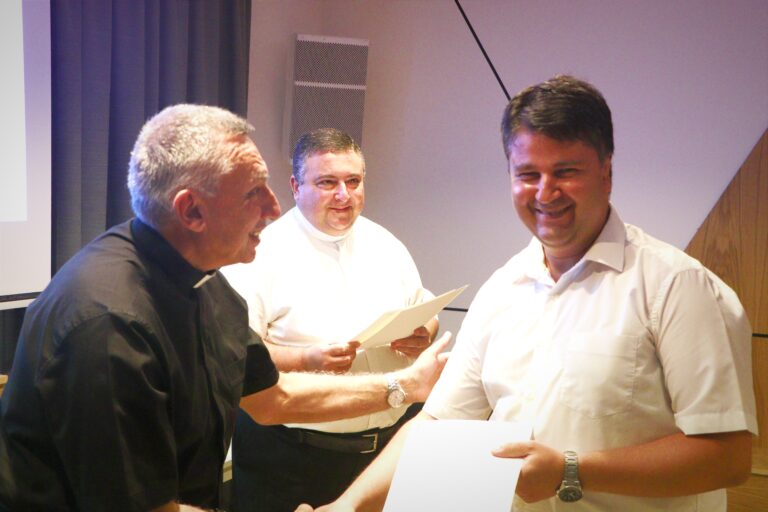
Eċċellenza Tiegħek Monsinjur Isqof Anton Teuma, Dun Noel Debono, Direttur tal-Istitut tal-Ministeru Pastorali, Bord tad-Diretturi tal-Istitut tal-Ministeru Pastorali, sinjuri.
Fl-Ittra lil-Lhud insibu li matul iż-żmien, Alla kellemna b’diversi modi, imma fl-aħħar kellemna permezz ta’ Ibnu. Għalija hi awtomatika l-mistoqsija: kif nistgħu nitkellmu u nidħlu fi djalogu ma’ Kristu, l-Iben ta’ Alla, jekk ma nħallux il-Kelma tiegħu tkellemna? Għalija din kienet domanda pertinenti, speċjalment matul is-Sena Pastorali fejn iffukajna fuq il-Kelma t’Alla. Veru li biex ngħidulu xi ħaġa lil Alla, aħna nistgħu nitolbuh, nirringrazzjawh, nadurawh, u b’espressjonijiet oħra nitkellmu miegħu. Imma biex Alla jgħidli xi ħaġa Hu, biex Alla jweġibni, jien ma nistax nippretendi li se nara xi viżjoni ta’ Kristu, li fiha jidher quddiemi u jweġibni għal dak kollu li forsi ilu jikkonfondini. U l-fatt li l-Mulej tana l-Kelma tiegħu nistgħu fiż-żgur ninterpretawh bħala wieħed mill-aktar mezzi konkreti, fost mezzi oħra, kif Alla kien, għadu u jibqa’ jikkomunika magħna u jibqa’ jkun magħna, apparti naturalment permezz tal-Ewkaristija, permezz tal-Ispirtu s-Santu u permezz tal-proxxmu. Bil-Kelma tiegħu, Alla għadu jidħol fi djalogu magħna u jagħtina l-Kelma. Għax fl-istess spirtu tat-tradizzjoni Lhudija – kif anke tgħallimna fil-kors dwar il-Bibbja – il-Kelma tal-Mulej hija kelma li ladarba ngħadet, hija affermazzjoni li se titwettaq minn min qal din il-Kelma li ta. Alla nnifsu magħmul bniedem, mingħajr ma kien għadu biss lissen kelma għajr il-biki ta’ tarbija f’għar ġo Betlem, huwa t-twettiq tal-ikbar wegħda: li aħna stħaqqilna Salvatur, il-‘Verbum Abbreviatum’ kif jgħidilna San Girgor, li l-Kelma tiegħu toffri sinteżi ta’ dak kollu li kellu jgħidilna Alla, li l-Kelma tiegħu iddawwlilna t-triq, tħarisna u tagħtina l-unika tama li fiha jagħmel sens li nittamaw qabel kull tama f’xi ħaġa oħra. Din hija t-tama li tassew – kif jikteb San Pawl fl-Ittra tiegħu lir-Rumani – “ma tqarraqx bina, għax l-imħabba t’Alla ssawbet fi qlubna permezz tal-Ispirtu s-Santu li ġie mogħti lilna” (Rum 5:5). L-Ispirtu t’Alla, id-dawl imdawwal bil-Kelma, jurina li hemm tama f’dik it-triq id-dejqa li minkejja kollox nistgħu nimxu fiha, għax qabilna ġa mxieha Ġesù, li għażel li jilbes il-libsa miskina tagħna ta’ bnedmin biex jinkuraġġinna nimxu warajH. Alla mess ma’, u libes, il-miskinità tagħna biex aħna nifhmu li l-vokazzjoni tagħna – mhux biss bħala nsara, imma, iktar fundamentali minn hekk, bħala bnedmin – hija li nirrealizzaw lilna nfusna billi ningħataw għall-proxxmu, min b’mod u min b’ieħor. Mhux ta’ b’xejn li lil Ġesù nsejħulu ‘Bin il-Bniedem’, u li ż-żmien hu msejjes fuq meta Hu ġie fid-dinja: għax Alla waħdu magħmul bniedem hu l-aqwa mudell ta’ bniedem kif għandu jkun!
Dan hu l-qofol kollu tar-Rivelazzjoni: pjan ta’ salvazzjoni għalina l-bnedmin li ġie attwat mhux kif immaġinajna aħna jew ta’ qabilna, imma kif Alla, fil-viżjoni tiegħu, ra li kien jaqbel għalina. Mhemm l-ebda triq li twassal għall-glorja li tibqa’, jekk mhijiex it-triq ta’ tbatija li jien, bl-għajnuna t’Alla waħdu, nista’ nasal nagħraf kif għandi niġġarrab permezz tagħha għall-glorja t’Alla. B’dan l-għan quddiemna, it-tbatija li joffrilna mhijiex waħda li għandha tkissirna jew taqtagħlna qalbna għal kollox, imma waħda li tittamana fi skop aħħari li permezz tiegħu nissaffew u nsiru bnedmin ġodda.
Lilna l-istudenti, il-kors fil-formazzjoni dwar l-istudji Bibbliċi kien ukoll kors li saffiena. Saffiena, jew għall-inqas ngħid għalija, saffieni, mhux l-inqas minn xi kunċetti żbaljati li kelli f’moħħi. Nagħti eżempju wieħed biss. Min jista’ qatt jifhem minn liema tbatija għadda minnha Ġesù fil-passjoni tiegħu? Kont kważi nħoss rabja kull darba li nġib quddiem għajnejja jew naqra dwar dawk li, fl-opinjoni li kelli qabel il-kors, għalija kienu dettalji nieqsa mir-rakkonti tal-evanġelji, meta l-evanġelisti jirrakkuntawlna mumenti saljenti mill-Passjoni ta’ Kristu fejn nafu kemm ġarrab tbatijiet ħorox. Fejn huma, fl-evanġelji, id-dettalji tan-narrattiva tal-istorja f’dawn l-istanzi, bħal ngħidu aħna waqt il-flaġellazzjoni u waqt il-Kruċifissjoni? Fejn hu l-laħam tan-narrattiva? Din mhijiex ġustizzja ma’ dak li għadda minnu Kristu, fil-Passjoni tiegħu, kont ngħid! Meta smajt it-tweġiba ta’ min mexxiena f’dan il-kors introduttorju għall-istudji Bibbliċi, Mons. Joseph Sultana, għal din ir-rimarka tiegħi, minn moħħi għadda l-ħsieb li bħal donnu li l-evanġelisti, lill-komunitajiet li għalihom kitbu l-evanġelji, ġa kellhom quddiemhom komunitajiet li faċli jaqgħu fit-tentazzjoni li jehdew jilħqu salib in-nies. U minkejja li Ġesù ġie biex isalvana bis-Salib tiegħu, l-evangelisti xorta raw kif għamlu biex lil Ġesù ma nippruvawx nilħqulu salibu għal xejn b’xejn, anke elfejn sena wara li gie! Minjaf kemm il-Xmun iċ-Ċirinew falz hawn iduru mas-saqajn! Kulħadd jista’ jitkellem għalih u kulħadd jista’ jixtarr jekk huwiex qed jagħmel l-istess żball ma’ ħaddieħor, forsi bla ma jinduna. Għax faċilment jiġri li nispiċċaw nippruvaw inwieżnu salib ħaddieħor sempliċiment biex nissodisfaw il-kurżitajiet tagħna dwar ħaddieħor minn xiex inhu għaddej, aktar milli biex verament ngħinuh. Kemm kont se nitgħallem inwieżen tassew is-Salib ta’ Kristu, kieku kont naf kemm tassew kien tqil? L-esperjenza tal-ġarr tas-salib tagħna tgħallimna li ħadd ħliefi mhu sejjer iġorr is-salib tiegħi, anke jekk niġi megħjun, kif għandu jkun. L-istess kien jgħodd għas-Salib ta’ Kristu. Hekk allura l-evanġelisti ħallewna b’din it-togħma għal ċerti dettalji nieqsa mill-Passjoni ta’ Kristu, sabiex anke jekk nafu permezz tal-istudji Bibbliċi u xjenzi oħra x’estremità ta’ tbatija għadda minnha Ġesù, xorta waħda nevitaw milli nieqfu u neħlu ma’ dawn id-dettalji ta’ tbatija meta nitolbu bl-evanġelji jew bil-Kelma t’Alla.
Jagħtuna kemm jagħtuna dettalji dwar Alla l-kotba fl-Iskrittura, Alla jibqa inkomprensibbli. Min jista’ jifhem lil Alla? Għalina dak kollu li ma nistgħux nifhmu, il-misteru, jaf jaqa’ fin-nassa tal-iskreditu, u narmuh biex nevitaw li nimpjegaw iż-żmien tagħna biex nifhmu xi ħaga tqila. Ħarsu lejn it-tabelli li nagħtu lil dak kollu li jinsab madwarna. Nagħtu prezz lil oġġett u prezz ogħla lil xi oġġett ieħor anke jekk it-tnejn jaqdu l-istess funzjoni; nagħmlu l-istess anke mal-bnedmin meta nistmaw lil xi ħadd mod, u lil xi ħadd ieħor mod ieħor. Forsi l-kummdità akbar li joffri oġġett b’differenza minn oġġett ieħor li jaqdi l-istess funzjoni naslu nipperċepuha meta bla ma nindunaw niddiskriminaw bejn żewġ persuni, abbażi tal-kummditajiet jew in-nuqqas tagħhom li joffrulna, meta dan mgħandux ikun minnu, għax kull bniedem mgħandux ikollu prezz ladarba huwa imprezzabbli. Hawn japplika tassew dak li darba qal Oscar Wilde dwar il-bniedem ċiniku: “Cyncism is knowing the price of everything and the value of nothing.”
Nuża dan l-istess ħsieb aħħari dwar iċ-ċiniċiżmu, biex nikkonkludi. Darba rajt karikatura, li kien fiha x’tifhem, fejn Ġesù kien qiegħed jgħid dan il-kliem lil ġrupp ta’ erba’ jew ħames individwi li kienu esperti fl-Iskrittura imma li wżaw ħażin dan l-għerf, bħalma sfortunatament insibu min, anke f’Malta, jagħmel l-istess u wieħed jinduna, meta jisma’ dan is-suppost għerf ħiereġ minn fomm dawn il-persuni, li l-iskop tagħhom mhuwiex li juru l-kobor tal-pjan ta’ Alla għalina, imma li juru l-kobor li huma attribwew għalihom infushom. U f’din il-karikatura, lil dawn is-suppost esperti fl-Iskrittura, Ġesù jgħidilhom: ‘Id-differenza ta’ bejni u bejnkom hija li intom tużaw l-Iskrittura biex tiddeterminaw xi tfisser l-imħabba, u jien nuża l-imħabba biex niddetermina x’qed tfisser l-Iskrittura’. Mhux ta’ b’xejn li min jagħmel bħal Ġesù f’din il-karikatura, jaf bl-istess silta mill-Bibbja llum iħoss lil Alla jkellmu b’mod, u għada pitgħada jħoss lil Alla jkellmu b’mod ieħor! U mhux ta’ b’xejn l-intransiġenza tal-psewdo-esperti, li jafu biss jinterpretaw il-versi tal-Iskrittura b’mod litterali. Għalhekk l-appell tiegħi huwa wieħed: tfittxux l-esperti tal-Bibbja li jehdew biss jikkwotaw biex jimpressjonaw, anzi dawn ibżgħu minnhom. Fejn tidħol il-Bibbja u t-tagħlim tagħha, fittxu għalliema bħal Fr Joe, u minn hawn nirringrazzjah, li meta tisimgħu tinduna li anke minkejja li huwa ferm mgħallem fis-suġġett, madanakollu jaf li anke fil-każ tiegħu, mgħallem kemm hu mgħallem fis-suġġett, dejjem se jibqa’ jkun hemm lakuni kbar ta’ għerf li għadu jibqa’ jfittex li jimla f’sens ta’ umiltà lejn il-kobor tal-misteru divin. Dan mhuwiex neċessarjament l-għerf li fadallu jakkumula biex jifhem hu stess kemm l-Iskrittura Mqaddsa hija kbira – għax persważ li ġa jafu dan – imma huwa ċertament l-għerf li bih nistgħu qatt nifhmu lil Alla, għerf li qatt ma jista’ jimtela’ f’din id-dinja, għax bħalma jgħid San Pawl fl-ewwel Ittra lill-Korintin, “Issa naraw bħal f’mera, mhux ċar, imbagħad naraw wiċċ imb’wiċċ. Issa nagħraf biċċa, imbagħad nagħraf sewwa bħalma jien magħruf” (1 Kor 13:12).
Lil Alla mhemmx bżonn nifhmuh, imma hemm bżonn nagħmlu att ta’ fidi u nintelqu f’idejH, u l-Iskrittura – il-Kelma tiegħu – hija wieħed mill-aqwa għodod kif nistgħu nagħmlu dan l-att ta’ fidi, permezz ta’ dak kollu li qalilna Alla, bil-milja tintlaħaq fl-espressjoni tal-Kelma nnifisha u l-wasla tagħha fostna, il-Verb magħmul Bniedem, Kristu Ġesù. Għinna Mulej nifhmu li inti tassew il-Mulej, li f’idejk hi t-twellija tal-għalqa t’Alla l-Missier, u li aħna sempliċiment kollaboraturi tiegħek għall-glorja tiegħu. Mhux immexxu aħna, imma l-Kelma u l-Ispirtu tiegħek imexxuna, u l-Ġisem u d-Demm tiegħek jagħtuna l-ħajja.
Maria Grima
Ċerimonja tal-Gradwazzjoni – kors ta’ Introduzzjoni għall-Istudji Bibbliċi 2023/2024 26.07.2024
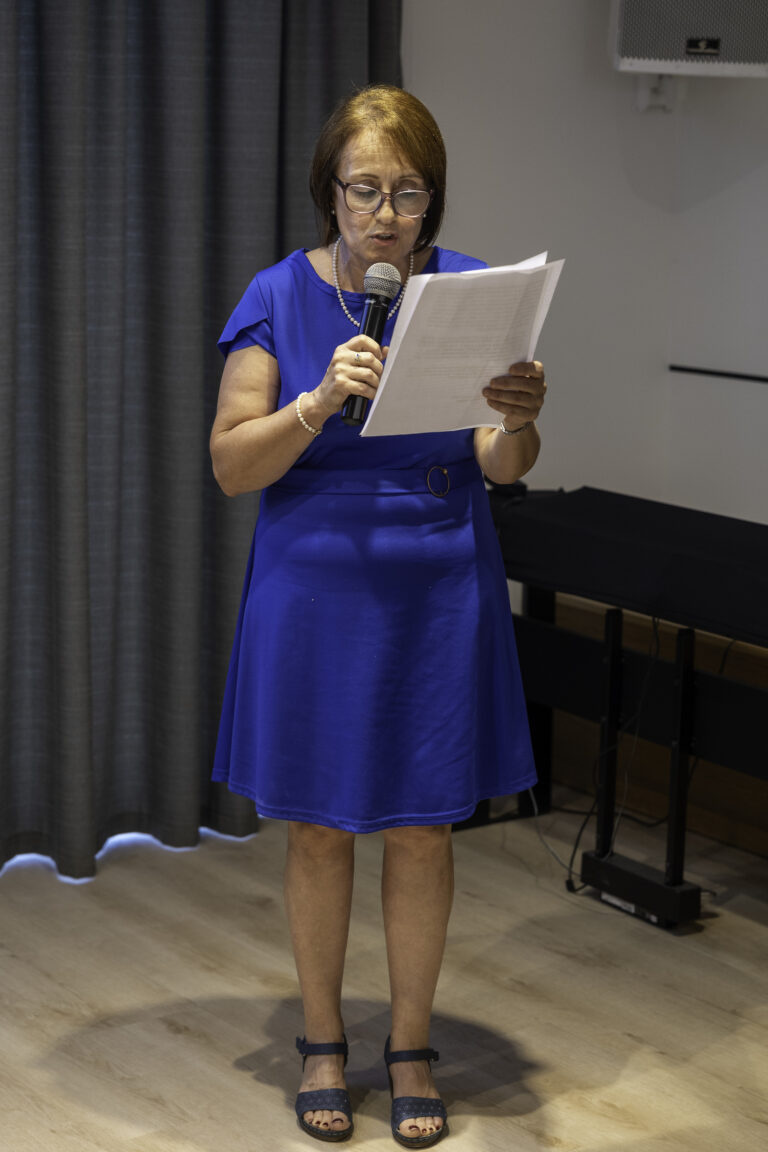
Eċċellenza, l-Isqof Anton Teuma, Membri tal-Board tal-Institute for Pastoral Ministry (IPM), Sinjuri, insellmilkom.
L-ewwel nett nibda biex f’isem sħabi kollha li attendew għall-kors “Award in Biblical Studies” nirringrazzja lill-membri tal-Board tal-Institute for Pastoral Ministry (IPM) għall-ħidma u l-impenn tagħhom biex jorganizzaw dawn il-korsijiet fuq livell akkademiku.
Nista ngħid li l-kors “Award in Biblical Studies” kien kors mhux biss intensiv u interessanti iżda wkoll sibnieh utli fil-ħidma tagħna fid-diversi ministeri li nwettqu. Aħna li attendejna għal dan il-kors ilkoll nattendu xi Komunità Ewkaristika, il-Lectio Divina jew laqgħat oħra. Inwettqu l-ministeri ta’ letturi, animaturi u katekisti. Iżda għalkemm forsi, nista’ ngħid li, aħna midħla tal-Kelma ta’ Alla xorta waħda konna nħossu li ma nafux biżżejjed. Xtaqna nitgħallmu u nkunu nafu iżjed fuq is-sbuħija tal-Kelma ta’ Alla u dan kien il-motiv prinċipali għaliex attendejna għal dan il-kors. Meta tfajna l-applikazzjoni żgur ġiena f’moħħna kif se llaħħqu nattendu għal dan il-kors u nkomplu bl-impenji tagħna ta’ kuljum. Iżda nista’ nassigurakom li ma stajniex ninvestu fil-ħin tagħna aħjar minn hekk, billi attendejna għal dan il-kors ta’ sagħtejn fil-ġimgħa. Mill-interess li wrejna waqt il-lectures u mill-mistoqsijiet li konna nagħmlu lill-lecturer jidher ċar kemm konna għatxana li nitgħallmu iżjed dwar il-Bibbja.
Il-lecturer, Mons. Joseph Sultana kien eċċelenti fil-mod kif wassal it-tagħlim tiegħu. Kien jieħu ħsieb li qabel kull lecture tintbagħtilna handout soft copy biex inkunu nistgħu nsegwu aħjar il-lezzjoni. Nista’ ngħid li tana aktar milli stennejna. Kien jispjega u jidħol fid-dettal biex inkunu nistgħu nifhmu aħjar. Kien isammarna bi kliemu u kien lest u ppreparat jirrispondi għal kull diffikultà jew domanda li konna nagħmlulu. Ġieli kont immur id-dar, u persważa li anke sħabi kienu jagħmlu l-istess, u nerġgħu nisimgħu l-lezzjoni li konna nirrekordjaw biex fil-kwiet nixtarru kull kelma; jew inkella nidħlu fl-internet u nfittxu iktar fuq is-suġġett. Mons. Joseph Sultana kien ta’ għajnuna kbira wkoll fil-paper li ppreparajna. U hawnhekk, f’isem sħabi nixtieq nirringraazjah. Grazzi wkoll lis-segretarja Rossana Cremona tal-għajnuna tagħha matul il-kors kollu. Nixtiequ wkoll nuru l-apprezzament tagħna għall-fatt li kellna l-librerija tas-Seminarju għad-dispożizzjoni tagħna.
Grazzi għal dan il-kors li, għalkemm pjuttost qasir imma intensiv, komplejna nagħrfu s-sbuħija tal-Kelma ta’ Alla fil-Bibbja. Għalhekk nirrakkomanda dawn it-tip ta’ korsijiet lil dawk kollha li b’xi mod iwasslu l-Kelma ta’ Alla f’laqgħat, komunitajiet, duttrina, eċċ. Nemmen li biex twassal il-Kelma ta’ Alla lil ħaddieħor trid tidħol aktar fil-fond fiha, tifhimha u tgħixha. Wieħed ma jistax jagħti minn dak li ma jafx jew m’għandux.
Għalhekk nagħlaq billi nħeġġeġ id-direzzjoni tal-IPM biex ikomplu jorganizzaw dawn il-korsijiet. Aħna bħala grupp li attendejna għal dan il-kors “Award in Biblical Studies” qed nistennew xi kors ieħor bħala kontinwazzjoni jew wieħed simili.
Grazzi mill-qalb.
